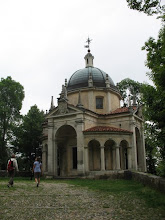In the article “On Dumpster Diving,” Lars Eighner did an extraordinary job describing his life on the streets. I felt as if I could have been there next to him helping go through the steps of determining if something found in the pits of a dumpster was edible or not. He has such a way with words that makes you truly believe he was out there eating leftover pizza tossed out by a pizza delivery store, creating thrifty tools that would make his scavenging as efficient as possible and coming up with ways to turn embroider-by-number kits into gifts. He experienced it all.
I noticed in Susan Bordo’s piece of writing titled “The Empire of Images in Our World of Bodies,” that her use of stories and examples were exceptional. She caught the audience immediately by saying that a place such Fiji, where the beautiful women were voluptuous and curvy but that clearly changed as soon as American and Britain television started to broadcast there. In showing vulnerability to the reader, she is able to bring in a perspective that most leave out when it comes to this topic. She uses ethos to create for her a sort of respect and admiration that she would be willing to share her personal struggles so openly.
As far as Richard Rodriquez’s article, “Public and Private Language,” there are a lot of emotion filled words. I could sense the pain that he was going through as he was forced to transition from one lifestyle to another. The difference in the way he portrays his family from the time that they used to all speak with vivaciousness before the move from Mexico to California and how home life became so dull that no one wanted to return home at the end of the day. It is upsetting to hear of a dwindling family. Although the story was distressing, I love how he went on to receive his Ph.D. in English Renaissance Literature of all things, is working as an editor for the Pacific News Service, and has published several books. There is nothing like a fairytale ending.
Subscribe to:
Post Comments (Atom)


No comments:
Post a Comment